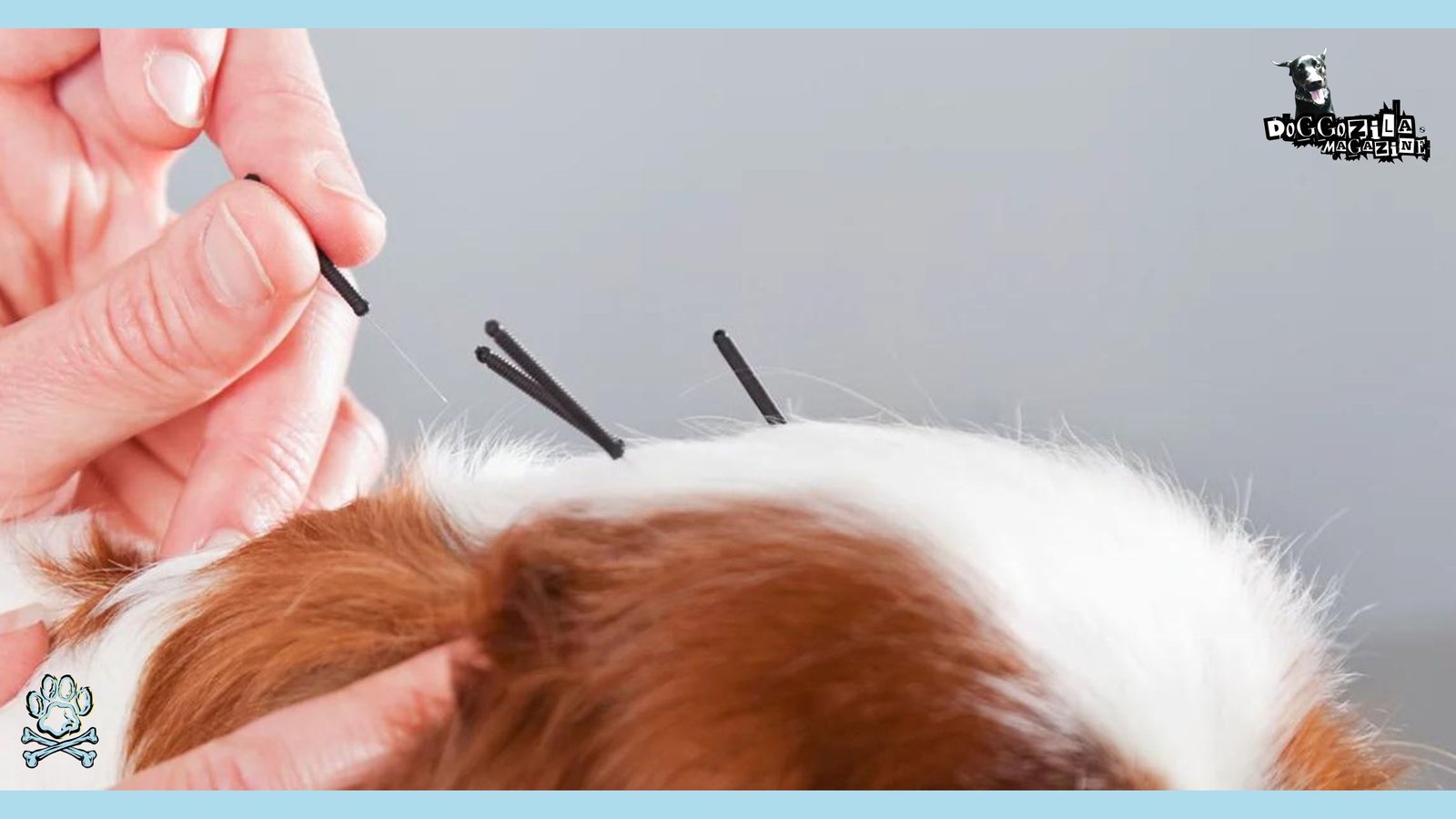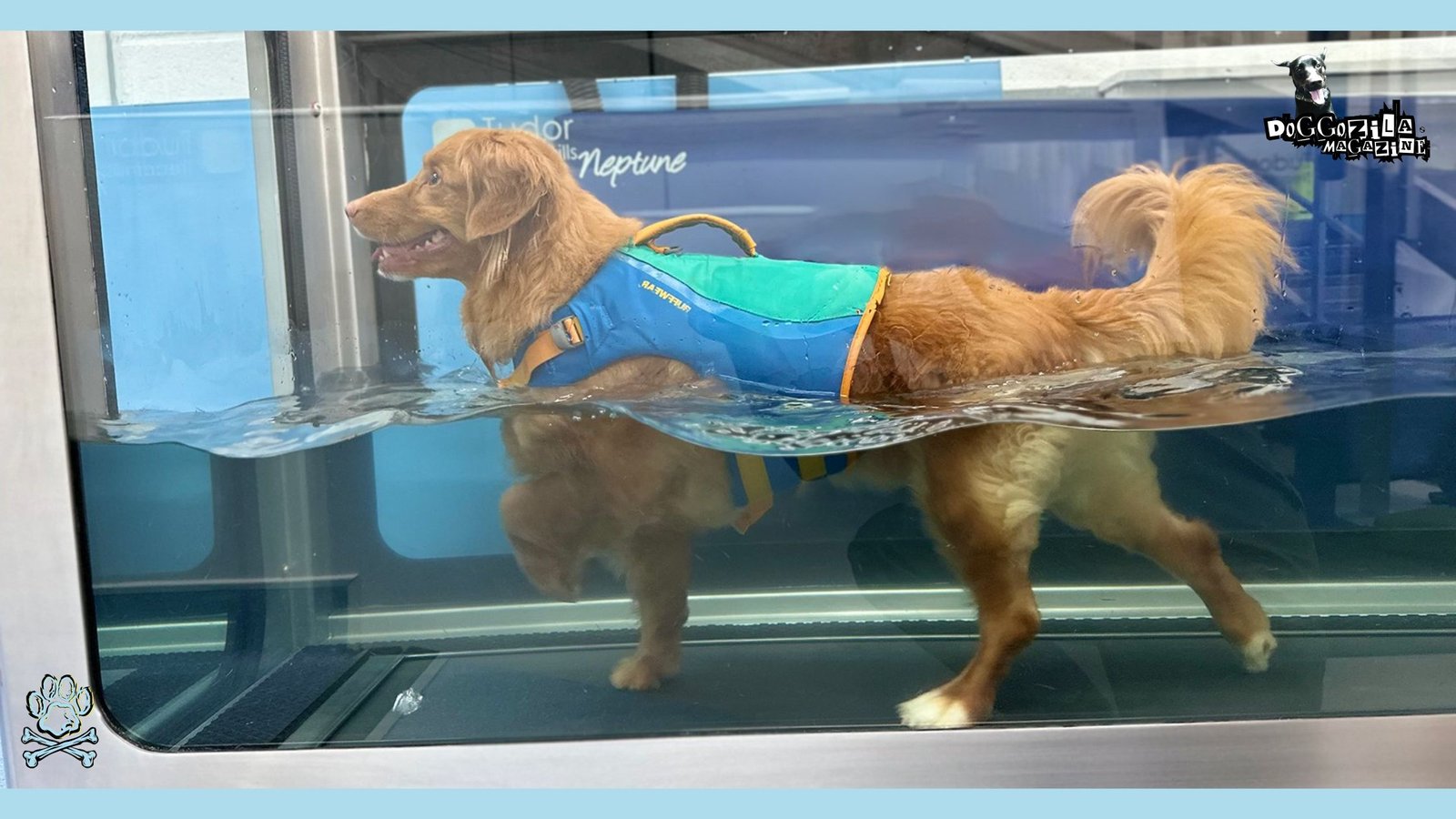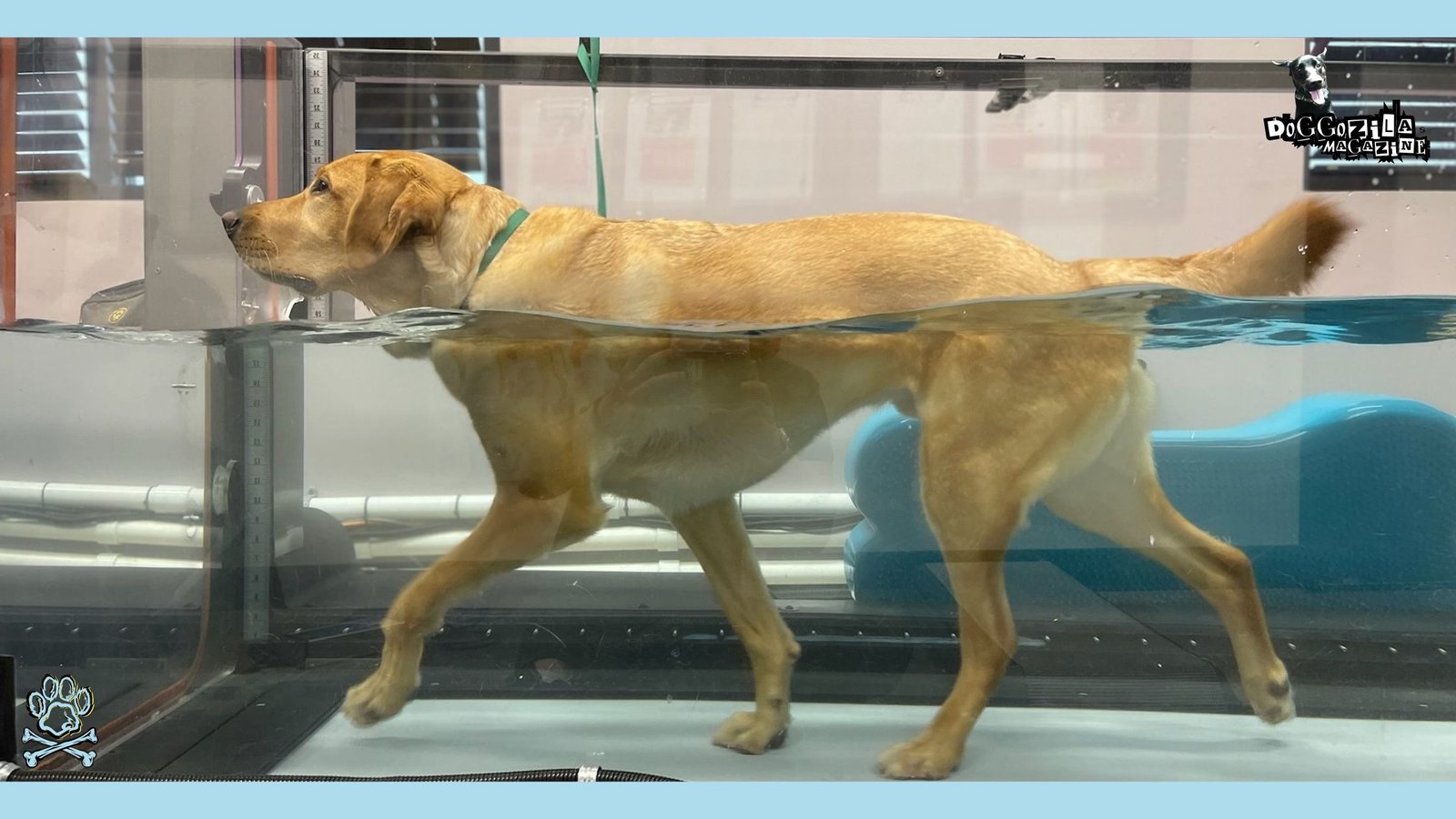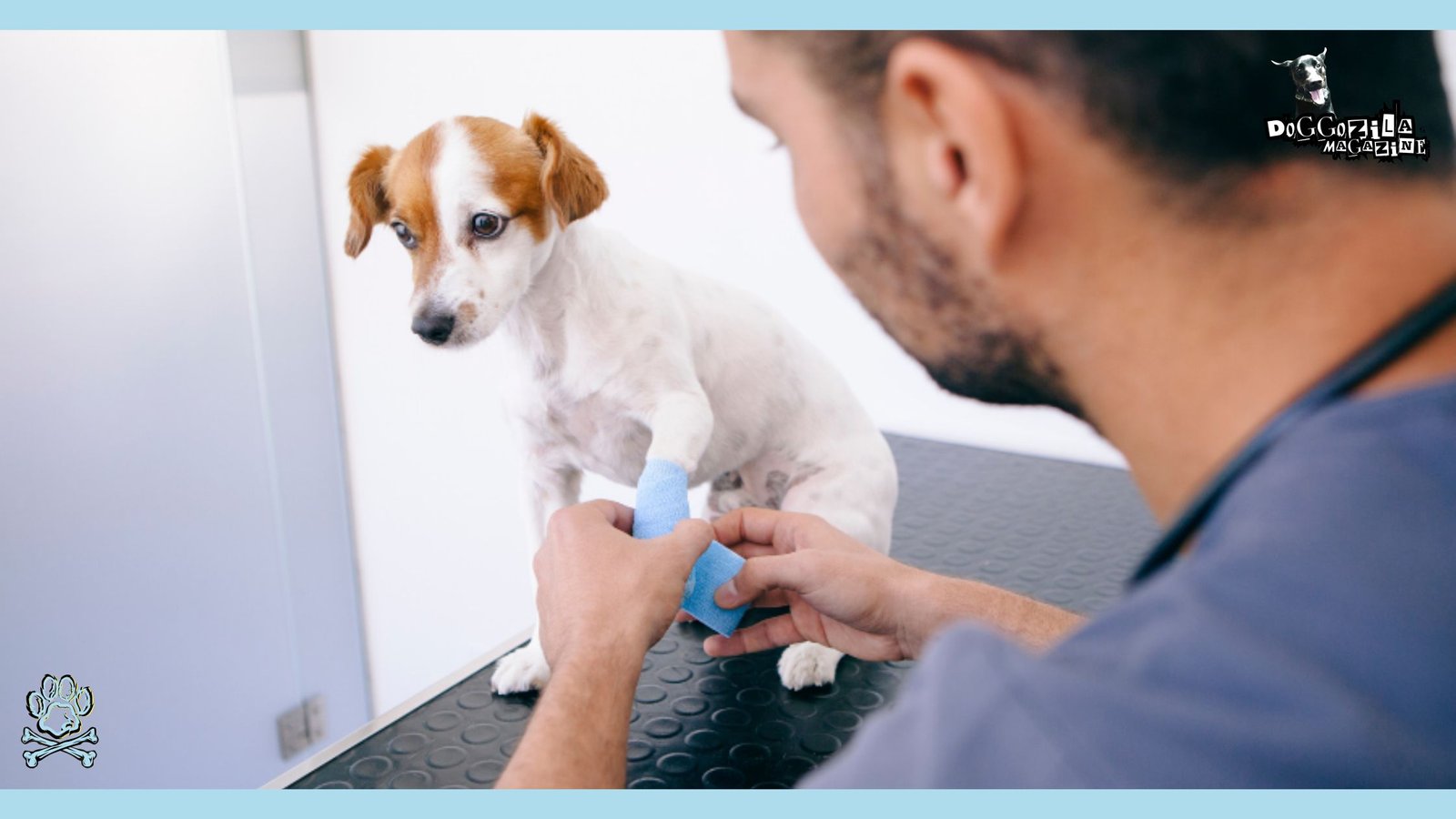
REVOLUTIONIZE THE DRUG-FREE PAIN RELIEF THERAPIES FOR YOUR DOGS
Seeking the best for your furry companion’s well-being? Look no further than our insightful guide on enhancing your dogs comfort through innovative, drug-free pain relief therapies. As a pet owner, witnessing your dog in discomfort can be heart-wrenching.
5 Cutting-Edge Drug-Free Pain Relief Therapies to Enhance the Comfort to All Dogs
That’s why we’re diving deep into 5 cutting-edge therapies—from PEMF to acupuncture, water therapy, massages, and beyond—to revolutionize your dog’s pain relief journey. Imagine a world where your canine companion moves with ease, free from the constraints of pain.
Our expertly crafted therapies aim to target specific areas of discomfort, offering holistic solutions for chronic conditions and joint pain. Embark on this transformative journey with us and discover the power of alternative treatments in providing your dog with the comfort and relief they deserve. Let’s pave the way for a happier, healthier life for your beloved pet.
Importance of Drug-Free Pain Relief Therapies for Dogs
As our loyal companions, dogs often face chronic conditions like arthritis that can significantly impact their quality of life. While traditional pain management methods involve medications, many pet owners are now turning to alternative therapies for a more holistic approach to their furry friend’s well-being.
Drug-free pain relief therapies options for dogs offer a gentler, yet effective way to alleviate chronic pain and improve overall comfort. By exploring these alternative treatments, we can help our dogs manage their pain levels without relying solely on pharmaceuticals that may have potential side effects.
Proven Drug-Free Pain Relief Therapies Options for Dogs
Imagine your beloved dog, once full of energy and vitality, now struggling to move due to joint pain caused by arthritis. It’s heartbreaking to watch them suffer, but there is hope. Alternative therapies like targeted PEMF, acupuncture, water therapy, and massage can provide much-needed relief and improve their mobility.
For instance, targeted PEMF therapy uses electromagnetic fields to stimulate healing and reduce inflammation in specific areas of your dog’s body. This non-invasive treatment can be particularly beneficial for dogs with chronic pain, as it promotes tissue repair and enhances blood circulation.
Similarly, acupuncture, a practice rooted in traditional Chinese medicine, involves the insertion of fine needles into specific points on your dog’s body to alleviate pain and restore balance. Many integrative veterinarians, like Dr. Julie Buzby, advocate for the use of acupuncture in managing conditions such as hip dysplasia and arthritis.
Water therapy is another excellent drug-free pain relief therapies option that allows dogs to exercise and strengthen their muscles in a low-impact environment. The buoyancy of the water supports their body weight, reducing stress on joints and providing a soothing experience.
Lastly, massage therapy can work wonders for dogs with chronic pain by relaxing tense muscles, increasing flexibility, and promoting overall well-being. A certified dog massage therapist can target specific areas of discomfort, providing relief and improving your dog’s quality of life.
🔑 Key Points: Drug-free pain relief therapies options offer a holistic approach to managing chronic conditions in dogs, providing effective alternatives to traditional pharmaceuticals.

UNDERSTANDING TARGETED PULSED ELECTROMAGNETIC FIELD (TPEMF) THERAPY
Targeted Pulsed Electromagnetic Field (tPEMF) therapies are an innovative drug-free pain relief option for dogs that has gained popularity among pet owners and veterinarians alike. This non-invasive treatment involves the use of devices like the Assisi Loop, which deliver targeted electromagnetic fields to specific areas of your dog’s body.
How the Drug-Free Pain Relief tPEMF Therapies Works for Dogs
tPEMF therapy works by emitting low-level electromagnetic fields that penetrate deep into your dog’s tissues. These fields stimulate cellular repair and regeneration, promoting healing and reducing inflammation. The therapy helps to increase blood circulation, oxygenation, and nutrient delivery to the affected areas, thereby alleviating pain and enhancing the body’s natural healing processes.
The Assisi Loop: A Game-Changer in Drug-Free Pain Relief tPEMF Therapies for dogs
One of the most popular tPEMF devices for dogs is the Assisi Loop. This portable, battery-operated device is designed to be placed directly on your dog’s body, targeting specific areas of pain or inflammation. The Assisi Loop comes in different sizes to accommodate dogs of various breeds and is easy to use at home or on the go.
Incorporating Drug-Free Pain Relief tPEMF Therapies into The Treatment Plan for Your Dogs
tPEMF therapy can be a valuable addition to your dog’s existing treatment plan, working in harmony with other therapies and medications. Many veterinarians recommend using the Assisi Loop in conjunction with traditional pain management methods for optimal results.
For example, if your dog is recovering from surgery, using the Assisi Loop alongside prescribed medications can help speed up the healing process and minimize discomfort. Similarly, for dogs with chronic conditions like arthritis, regular tPEMF therapy sessions can provide long-term pain relief and improve their overall quality of life.
🔑 Key Points: Targeted Pulsed Electromagnetic Field (tPEMF) therapy, using devices like the Assisi Loop, offers a safe and effective drug-free pain relief option for dogs by promoting cellular repair and reducing inflammation.

THE SCIENCE AND BENEFITS OF ACUPUNCTURE IN DRUG-FREE PAIN RELIEF THERAPIES FOR PAIN MANAGEMENT IN DOGS
Acupuncture, a centuries-old practice from traditional Chinese medicine, has gained recognition as an effective alternative treatment for managing pain in dogs. This therapy involves the insertion of fine needles into specific points on your dog’s body to stimulate healing and alleviate discomfort.
How Acupuncture Works in Dogs
Acupuncture is based on the belief that the body has a vital energy flow called “Qi,” which travels through pathways known as meridians. When this energy flow is disrupted, it can lead to pain and illness. By inserting needles into specific acupuncture points along these meridians, practitioners aim to restore balance and promote healing.
In dogs, acupuncture can help stimulate the release of endorphins, the body’s natural pain-relieving hormones. It also helps to increase blood circulation, reduce inflammation, and relax muscles, all of which contribute to pain relief and improved mobility.
Acupuncture for Arthritic Dogs
One of the most common applications of acupuncture in dogs is for managing arthritis pain. As dogs age, they become more susceptible to developing conditions like hip dysplasia and osteoarthritis, which can cause significant discomfort and hinder their mobility.
Integrative veterinarians, like Dr. Julie Buzby, often recommend acupuncture as part of a comprehensive treatment plan for arthritic dogs. Regular acupuncture sessions can help reduce joint pain, improve flexibility, and increase overall comfort, allowing your furry friend to enjoy a better quality of life.
Combining Acupuncture with Other Drug-Free Pain Relief Therapies for Dogs
Acupuncture can be used as a standalone treatment or in conjunction with other therapies for optimal results. Many veterinarians recommend combining acupuncture with targeted PEMF therapy, massage, and water therapy to provide a well-rounded approach to pain management.
For example, if your dog is undergoing acupuncture for hip dysplasia, incorporating targeted PEMF therapy using the Assisi Loop can help enhance the benefits of the treatment. The electromagnetic fields emitted by the Assisi Loop can penetrate deep into the tissues, promoting cellular repair and reducing inflammation in the affected hip joint.
🔑 Key Points: Acupuncture is a safe and effective alternative treatment for managing pain in dogs, particularly for those with arthritis, and can be combined with other therapies for optimal results.

DISCOVERING WATER THERAPY: A SOOTHING APPROACH FOR ARTHRITIC DOGS
Water therapy, also known as hydrotherapy, is a gentle and effective way to help dogs with arthritis manage their pain and improve their mobility. This low-impact form of exercise allows dogs to move more freely in the water, taking pressure off their joints and providing a soothing environment for rehabilitation.
The Benefits of Water Therapy for Arthritic Dogs
Water therapy offers numerous benefits for dogs with arthritis, making it an excellent addition to their pain management routine.
Some of the key advantages include:
- Reduced Joint Stress: The buoyancy of the water supports your dog’s body weight, reducing the stress on their joints. This makes it easier for them to move and exercise without exacerbating their arthritis pain.
- Increased Flexibility and Range of Motion: The warm water temperature and gentle resistance help to loosen stiff muscles and improve flexibility. As your dog moves through the water, they can gradually increase their range of motion, which is essential for maintaining joint health.
- Strengthened Muscles: Water therapy provides a low-impact way to build and maintain muscle strength. As your dog swims or walks in the water, they engage their muscles without putting excessive strain on their joints. Stronger muscles help to support the joints, reducing pain and improving overall mobility.
Different Types of Water Therapy for Dogs
There are several ways to incorporate water therapy into your dog’s arthritis management plan, depending on their specific needs and preferences:
- Underwater Treadmill: An underwater treadmill allows your dog to walk or run against the resistance of the water, providing a controlled and safe environment for exercise. This is particularly beneficial for dogs with severe arthritis or those recovering from surgery.
- Swimming: Swimming is a fantastic low-impact exercise that engages your dog’s entire body. It helps to improve cardiovascular health, strengthen muscles, and increase endurance. Many rehab facilities offer swimming pools specifically designed for dogs.
- Aquatic Massage: Aquatic massage combines the benefits of water therapy with the therapeutic effects of massage. A trained therapist uses the water’s resistance and gentle pressure to massage your dog’s muscles, promoting relaxation and reducing pain.
Incorporating Water Therapy into Your Dog’s Routine
To get started with water therapy, consult with your veterinarian or a certified canine rehabilitation therapist. They can assess your dog’s specific needs and recommend the most appropriate form of water therapy.
It’s essential to start slowly and gradually increase the duration and intensity of the sessions. Your dog may need some time to get used to the water, so be patient and offer plenty of encouragement and rewards.
Combining water therapy with other drug-free pain relief therapies options for dogs, such as targeted PEMF therapy using the Assisi Loop or acupuncture, can provide a comprehensive approach to managing your dog’s arthritis pain.
🔑 Key Points: Water therapy is a gentle and effective way to manage arthritis pain in dogs, offering reduced joint stress, increased flexibility, and strengthened muscles through various aquatic exercises.

THE HEALING TOUCH: HOW MASSAGE THERAPY BENEFITS DOGS
Massage therapy is a wonderful way to provide comfort and pain relief for dogs, particularly those with chronic conditions like arthritis or recovering from surgery. The power of touch can work wonders in reducing muscle tension, improving circulation, and promoting overall relaxation.
The Benefits of Massage Therapy for Dogs
Massage therapy offers numerous benefits for dogs of all ages and sizes, including:
- Pain Relief: Gentle massage techniques can help to alleviate pain and discomfort associated with arthritis, hip dysplasia, and other chronic conditions. By targeting specific areas of the body, massage therapy can reduce inflammation and promote healing.
- Improved Circulation: Massage helps to stimulate blood flow and lymphatic drainage, which can aid in the removal of toxins and the delivery of oxygen and nutrients to the muscles and tissues. This improved circulation can speed up the healing process and enhance overall well-being.
- Reduced Muscle Tension: Dogs with chronic pain often experience muscle tension and stiffness, which can exacerbate their discomfort. Massage therapy can help to loosen tight muscles, improve flexibility, and increase the range of motion in affected joints.
Finding a Certified Dog Massage Therapist
To ensure your dog receives the best possible care, it’s essential to work with a certified dog massage therapist. These professionals have undergone specialized training to understand canine anatomy and apply appropriate massage techniques.
When searching for a massage therapist, ask for recommendations from your veterinarian or fellow dog owners. You can also look for professionals certified by reputable organizations such as the National Board of Certification for Animal Acupressure and Massage (NBCAAM).
Incorporating Massage into The Drug-Free Pain Relief Therapies Management Plan for Your Dogs
Massage therapy can be a valuable addition to your dog’s comprehensive pain management plan, working in harmony with other drug-free pain relief options for dogs like targeted PEMF therapy and acupuncture.
For senior dogs or those with chronic pain, regular massage sessions can help to maintain muscle tone, reduce stiffness, and improve overall quality of life. Massage can also be beneficial for dogs recovering from surgery, as it can help to reduce swelling and promote healing.
When incorporating massage into your dog’s routine, start with short sessions and gradually increase the duration as your dog becomes more comfortable. Be sure to communicate with your massage therapist about your dog’s specific needs and any areas of concern.
🔑 Key Points: Massage therapy is a gentle, non-invasive way to provide pain relief, improve circulation, and reduce muscle tension in dogs, making it a valuable addition to a comprehensive drug-free pain relief therapies management plan.

EXPLORING ALTERNATIVE DRUG-FREE PAIN RELIEF THERAPIES FOR DOGS: BEYOND CONVENTIONAL PAIN MANAGEMENT
While conventional pain management methods like medication can be effective, exploring alternative therapies can provide a more holistic approach to your dog’s well-being. By combining various drug-free pain relief therapies options for dogs, you can create a tailored treatment plan that addresses your dog’s unique needs and promotes long-term comfort.
Chiropractic Care for Dogs
Chiropractic care is a popular alternative therapy that focuses on the musculoskeletal system, particularly the spine. By realigning the vertebrae and relieving pressure on the nerves, chiropractors can help to reduce pain, improve mobility, and enhance overall function.
Dogs with chronic conditions like arthritis, hip dysplasia, or intervertebral disc disease (IVDD) can benefit greatly from chiropractic adjustments. This therapy can also be helpful for dogs recovering from injuries or surgery, as it can speed up the healing process and prevent compensatory issues from developing.
Herbal and Natural Remedies
Herbal and natural remedies have been used for centuries to treat various ailments in both humans and animals.
Some herbs and supplements that may help alleviate pain and inflammation in dogs include:
- Turmeric: This vibrant yellow spice contains curcumin, a powerful anti-inflammatory compound that can help reduce joint pain and stiffness.
- Boswellia: Also known as Indian frankincense, Boswellia has been shown to have anti-inflammatory properties and may help alleviate arthritis pain.
- Omega-3 Fatty Acids: Found in fish oil and other sources, omega-3 fatty acids can help reduce inflammation and support joint health.
Before incorporating any herbal or natural remedies into your dog’s diet, consult with an integrative veterinarian like Dr. Julie Buzby to ensure safety and proper dosage.
Therapeutic Laser Treatment
Therapeutic laser treatment, also known as low-level laser therapy (LLLT) or cold laser therapy, is a non-invasive option that uses focused light to stimulate healing and reduce pain. The laser energy penetrates deep into the tissues, promoting cellular repair, increasing circulation, and reducing inflammation.
Laser therapy can be particularly beneficial for dogs with acute injuries or chronic pain conditions. It can help to speed up wound healing, reduce post-surgical pain and swelling, and provide relief for arthritic joints.
Combining Alternative Therapies for Optimal Results
The most effective pain management plans often involve a combination of alternative therapies tailored to your dog’s individual needs. For example, a senior dog with arthritis may benefit from a combination of targeted PEMF therapy using the Assisi Loop, acupuncture, massage therapy, and herbal supplements.
By working closely with your integrative veterinarian, you can create a comprehensive treatment plan that maximizes the benefits of each therapy while minimizing potential side effects.
🔑 Key Points: Exploring alternative therapies like chiropractic care, herbal remedies, and therapeutic laser treatment can provide a more holistic approach to managing your dog’s pain and promoting overall well-being.

THE ROLE OF DIET AND NUTRITION IN MANAGING DOG ARTHRITIS
Proper nutrition plays a crucial role in managing dog arthritis and supporting overall joint health. By making informed choices about your dog’s diet, you can help reduce inflammation, maintain a healthy weight, and provide the necessary building blocks for strong bones and cartilage.
Omega-3 Fatty Acids: Nature’s Anti-Inflammatory
One of the most important dietary considerations for dogs with arthritis is the inclusion of omega-3 fatty acids. These beneficial fats, found in fish oil and other sources, have potent anti-inflammatory properties that can help reduce joint pain and stiffness.
Omega-3 fatty acids work by counteracting the effects of pro-inflammatory compounds in the body, such as omega-6 fatty acids. By achieving a balanced ratio of omega-3 to omega-6 fatty acids, you can help manage your dog’s arthritis pain and improve their overall well-being.
Maintaining a Healthy Weight in Dogs
Excess weight can put significant stress on your dog’s joints, exacerbating arthritis pain and reducing mobility. Maintaining a healthy weight through a balanced diet and regular exercise is essential for managing dog arthritis.
Consult with your veterinarian to determine your dog’s ideal weight and develop a tailored nutrition plan that meets their specific needs. This may involve switching to a weight management formula, reducing portion sizes, and incorporating low-impact exercises like swimming or short walks.
Glucosamine and Chondroitin: Building Blocks for Joint Health
Glucosamine and chondroitin are two key nutrients that support joint health by providing the building blocks for cartilage and synovial fluid. These compounds can help to slow down the progression of arthritis and improve joint function.
Many commercial dog foods designed for joint health include glucosamine and chondroitin in their formulas. You can also supplement your dog’s diet with these nutrients in the form of treats or powders, under the guidance of your veterinarian.
🔑 Key Points: A balanced diet rich in omega-3 fatty acids, combined with weight management and joint-supportive nutrients like glucosamine and chondroitin, can play a significant role in managing canine arthritis and promoting overall joint health.
Creating a Comfortable Home Environment for Your Arthritic Dog
Modifying your home environment to accommodate your arthritic dog’s needs can greatly improve their comfort and quality of life. By making a few simple changes, you can help your furry friend navigate their daily routine with greater ease and less pain.
A Quick Summary on Drug-Free Pain Relief for Dogs
When it comes to enhancing your dog’s comfort and well-being through cutting-edge drug-free therapies, the possibilities are endless. From targeted Pulsed Electromagnetic Field (tPEMF) therapy to the soothing effects of water therapy, and the holistic benefits of acupuncture and massage therapy, each approach offers a unique and effective way to manage your canine companion’s pain. By exploring alternative therapies beyond conventional pain management, you can revolutionize your dog’s pain relief journey and provide them with the comfort they deserve.
Remember, consulting with an integrative veterinarian like Dr. Julie Buzby can help tailor a treatment plan specific to your dog’s needs, ensuring long-term relief and improved quality of life. By integrating drug-free pain relief therapies with your dogs current treatment plan and creating a comfortable home environment, you can truly make a difference in your arthritic dog’s well-being.
Embrace these innovative therapies and witness the transformation in your beloved pet’s life, offering them a brighter and pain-free tomorrow.

Thank you for embarking on this journey towards enhancing your dog’s comfort and happiness.









